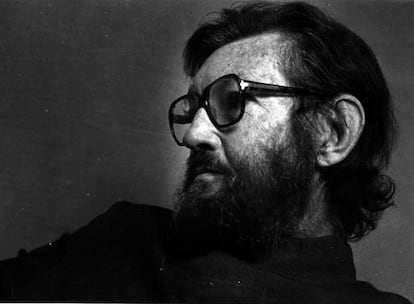The Argentine publisher Mario Muchnik has died this Sunday in Madrid at the age of 91, according to his family.
Born in the province of Buenos Aires in 1931, he received his doctorate in Physics and worked as a photographer from an early age, but his life's vocation was editing, which he practiced in all its variants: family, multinational and, in his last stage, single-person .
Born into a family of Jews of Russian origin, he was in his twenties a student at the universities of Columbia (New York) and Rome when his father, Jacobo, founded the mythical Fabril Editora, the seed of the label that, a little later, would put the surname of the family in the history of the edition.
In 1978 he settled in Barcelona and never left Europe again.
In the Catalan capital he continued with the work of Muchnik Editores, in which he took a break to work as literary director at Seix Barral and Ariel.
There are three main lines in which he was an absolute pioneer: the dialogue between sciences and humanities, Latin American literature and Jewish culture.
At a time when the Holocaust was far from being the literary subgenre it is today, he published, in a translation by Pilar Gómez Bedate, the emblematic trilogy by Primo Levi made up of
Si esto es un hombre, La tregua
and
Los hundidos y los salvados.
He was also the first editor of
Maus
, when the Art Spiegelman comic that transformed the way of telling the Shoah was known only to fans.
In addition, he bet against all odds on a demanding German-speaking Bulgarian Sephardic author who would end up winning the Nobel Prize in 1981, when he was already part of his catalog: Elias Canetti.
Sometimes, however, time took a little longer to prove him right.
Just a few weeks ago the translator Sofía Noguera recalled that 24 years ago she proposed to translate “a Tanzanian writer who lives in England and writes in English”.
She was referring to Abdulrazak Gurnah, awarded last October, to the surprise of many, by the Swedish Academy.
His friend Julio Cortázar, whom he photographed in Segovia months before his death in 1984, published one of his last titles with him:
Nicaragua tan violently dulce
, the fruit of the
Rayuela
author's commitment to the Sandinista revolution.
As a result of his double training - sciences and letters - he was introduced to the general reader by an author who soon became a reference: the neurologist and essayist Oliver Sacks, author of the famous
The man who mistook his wife for a hat.
Likewise, he opted for the universal travel literature of Bruce Chatwin when, from Castile to the Alcarria, the genre was still anchored in Spain to the domestic journey of the authors of the generations of 1998 or the postwar period.
A long-time reader and prescriber, he also had an eye for brilliant bestsellers such as
On behalf of the dead princess
, by the French author of Turkish origin Kenizé Mourad.
Julio Cortázar, portrayed by Mario Muchnik.MARIO MUCHNIK
A demanding professional and a man of character, Mario Muchnik sold his label to the Anaya group but continued to lead it.
Over time he was baptized as El Aleph within Edicions 62 (today part of the Planeta group).
Disenchanted by the experience but irreducible, he decided to found in 1988, with his wife —Nicole—, Del taller de Mario Muchnik, ahead —by force— of the boom of the independents that would end up revolutionizing the cultural panorama in Spain and Latin America.
It was also a time when he put in order his immense legacy - more than 50,000 negatives - as a photographer.
From the Paris of the sixties to his writer friends, some of the most iconic portraits of Sartre, Daniel Cohn-Bendit or Cortázar himself came out of his camera.
Although he never stopped writing and translating, the publication of his memoirs in 1999 brought him back into the spotlight.
The title —
The worst is not the authors
— and the sincerity —unusual in a guild that does not usually say the same thing in public as it does in private— also made it a benchmark for autobiographical writing.
Works such as
Test Bank, Editorial Lexicon
or
Story Adjustments
would continue in the wake of a work written without hot cloth: whether it was about revealing the egos of the writers —and writers— or the attempts of some of their widows —such as Rafael Alberti—for manipulating his legacy.
Divided between a few multinationals and hundreds of small labels, the Spanish publishing industry looks like a Mario Muchnik photograph.
Both would be very different without his work.









